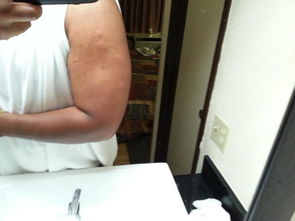
Understanding Bug Bites: Causes, Symptoms, and Effective Treatments
Bug bites can be a common and sometimes irritating occurrence, especially during the warmer months when insects are most active. Whether you’ve been bitten by a mosquito, a tick, or any other type of bug, knowing how to treat these bites properly is essential for a quick and comfortable recovery. In this article, we’ll delve into the causes, symptoms, and various treatment options for bug bites, providing you with a comprehensive guide to dealing with these pesky pests.
Causes of Bug Bites

Bug bites are caused by the piercing and feeding of insects on human skin. Common culprits include mosquitoes, ticks, bed bugs, fleas, and bees. Each type of insect has its own reasons for biting, but generally, they are seeking blood for nourishment or to lay eggs.
| Insect | Reason for Biting |
|---|---|
| Mosquitoes | Blood for egg production |
| Ticks | Blood for nourishment and to lay eggs |
| Bed bugs | Blood for nourishment and to lay eggs |
| Fleas | Blood for nourishment and to lay eggs |
| Bees | Blood for nourishment and to lay eggs |
Symptoms of Bug Bites

The symptoms of bug bites can vary depending on the type of insect and the individual’s sensitivity. Common symptoms include:
-
Pain or itching
-
Redness and swelling
-
Blisters
-
Wheals or hives
-
Infection
In some cases, bug bites can lead to more severe reactions, such as anaphylaxis, which is a life-threatening allergic reaction. If you experience difficulty breathing, swelling of the throat, or a rapid heart rate after a bug bite, seek medical attention immediately.
Home Remedies for Bug Bites

For most bug bites, home remedies can provide relief and help the bite heal. Here are some effective home treatments:
-
Wash the bite with soap and water to prevent infection.
-
Apply a cold compress to reduce swelling and numb the area.
-
Use over-the-counter antihistamines to relieve itching and swelling.
-
Apply calamine lotion to soothe the skin and reduce itching.
-
Consider using a baking soda paste by mixing baking soda with water to create a paste and applying it to the bite.
Medical Treatments for Bug Bites
In some cases, medical treatment may be necessary, especially if the bite becomes infected or if you have a severe allergic reaction. Here are some common medical treatments:
-
Antibiotics: If the bite becomes infected, your doctor may prescribe antibiotics.
-
Antihistamines: For severe allergic reactions, your doctor may prescribe stronger antihistamines or corticosteroids.
-
Immunotherapy: For those with severe allergic reactions, immunotherapy may be recommended to build tolerance to the allergen.
Preventing Bug Bites
Preventing bug bites is always better than dealing with them after the fact. Here are some tips to help you avoid these pesky pests:
-
Wear long sleeves and pants when outdoors, especially during dawn and dusk when insects are most active.
-
Use insect repellents containing DEET, picaridin, or oil of lemon eucalyptus.
-
Check your clothing and bedding for signs of bed bugs.
-
Related Posts
mens bit loafers,Mens Bit Loafers: A Comprehensive Guide
Mens Bit Loafers: A Comprehens…
oaxacan bites,Oaxacan Bites: A Culinary Journey Through Mexico’s Heartland
Oaxacan Bites: A Culinary Jour…




